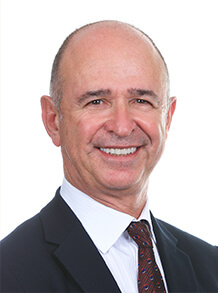So much has been written on COVID-19 over the past few months and it is so topical that it can become boring. People just want to talk about something else, as COVID-19 dominates every media broadcast, writes Prof. Peter Lachman.

Now as we enter the second wave, the key question is whether we have learnt from the past experience and will respond in a way that shows that we in healthcare management are part of a learning system.
There has been a lot of analysis on how the DOH and HSE and individual hospitals responded, what the politicians did or did not do, or what they will do. Medical experts and epidemiologists are at odds with each other. The behavioural scientists are having a field day and we in the midst of it all wonder when it will end. As healthcare managers, we can reflect on what works and perhaps look at some lessons which could help us going forward. Within the many papers on the topic of how to respond to the pandemic I reference two papers in NEJM Catalyst, that provide both direction and affirmation.
We can learn from other industries and from our own experience. We need to look at how we can become a learning organisation that is constantly testing, learning and improving.
The first came out in May and is one which I think every healthcare manager should read and digest. The authors describe the current situation as a perfect storm or a VUCA – Volatile, Uncertain, Complex and Ambiguous. That is exactly where we are with COVID and we can reflect on the principles they propose. The first is to always put people first and this means the people receiving care, the people providing care, the people without COVID and the public. This has always been difficult, and person centred care has taken a hit over the past few months. We then need to be creative about how we solve problems. Much of this is evident. The challenge is to take this creativity into the future and not return to the old ways . What has been clear is that communication is essential and where it is not, there are issues. This requires teamwork which is self-evident, but is something we need to constantly address. The solutions cannot be achieved in the silos of the past and part of the creativity is developing partnerships in and outside healthcare boundaries. This is what we must continue to do. Finally, we need leadership to be clear and humble, as some humility and acknowledgement of the complexity is essential. This will give us some clarity.
The second paper in July reflects on the development of a learning system in the Nightingale Hospital in London where rapid learning was an essential part of being creative and working across boundaries. The paper describes the development of the learning system and can be a template for what we need to do going forward – now as we deal with the current challenge and as we design for the future. The lesson from this paper is that we need to learn faster and that it is possible. The potential to learn from our experience is great. We need to think of the current challenge as an opportunity to go forward with the knowledge that it can be done.
Of course, one could say that this is all management speak – easy to write about, yet difficult to implement. But, as we reflect on what we need to do going forward, we can learn from other industries and from our own experience. We need to look at how we can become a learning organisation that is constantly testing, learning and improving.
- [1]Ingrid M. Nembhard, Lawton R. Burns & Stephen M. Shortell Responding to Covid-19: Lessons from Management Research https://catalyst.nejm.org/doi/full/10.1056/CAT.20.0111
- [2]Richard Bohmer, Jenny Shand, Dominique Allwood, Andrew Wragg, James Mountford, Learning Systems: Managing Uncertainty in the New Normal of Covid-19 https://catalyst.nejm.org/doi/full/10.1056/CAT.20.0318

